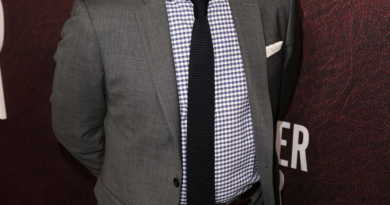An Overdue Reckoning in Evangelical Churches
I grew up a Sunday-morning Presbyterian, and later, a youth group Methodist. Church was an obligatory respite, if in practice, a little boring. Only deep into my teens did my faith become one where sin and salvation were fixed, battling entities in my life.
When I was a high school senior, I found myself at a church hall dance in a neighboring town. I’d met the Christian electronica-pumping DJ a few times. He was straight edge and single. His pants were baggy, and he wore his hair long on top with frosted tips.
I climbed onto the stage where he was hunched over CDs to say hello. I thought I was flirting. He asked me something, grabbed my hand, and prayed. The thumping drive of the music was so loud I couldn’t hear what he said, but when done, he pulled me into a hug. His salty teen-boy cologne clung to his T-shirt, which had little rips at the neckline. I thought he might like me. He turned off the music and asked me to testify at the mic. Evidently, I’d just been saved.
Jesus had a new soul, one who was never positive she’d actually been saved. I didn’t even grasp what salvation might mean, exactly. Saved from what? To what end? Soon after, I got to know a Pentecostal preacher’s son. We dated briefly, and his whole youth group laid hands on me, speaking in tongues. I worried their state resulted from my evident condemnation.
If I hadn’t been so eager to crack the formula for salvation, I doubt I would have been so susceptible to influences eager to define sin, to tell me who I was in relation to God’s kingdom.
But one of my best friends took me with him to a Bible study in the cushy suburban home of an evangelical pastor. I sat uneasy in the pastor’s homemaker-tidied living room, as conversation inevitably strayed to damnation and immodest women. I wanted faith to bring me closer to heaven; all the talk seemed to be about hell.
Yet a holy desire consumed me, and I somehow found a defiantly compassionate God. Eventually, I began thinking God was calling me to become a minister. When I told my good friend who took me to Bible study, pity filled his clear, gentle eyes. He reminded me that according to Paul, women should not hold authority in church.
A seed of uncertainty rooted itself within. If I could be wrong about that call, how else might I have erred? What kind of God wouldn’t trust women to lead? Why, from a Bible with so many inherent contradictions and antiquated practices, was this a mandate that should stubbornly loom over me? I studied, prayed, eventually went off to divinity school. My questions could not square. I graduated an apostate.
It took years for doubt to dissolve my faith, and when it did, I found myself in seeming solitary possession of a heart broken by losing the church. I didn’t know anyone else who had loved God so much, then broken away. This was in the early 2000s, before believers would commonly broadcast their process of deconstructing their childhood faith. I went from calling myself a Christian to any number of things: agnostic, nonbeliever, atheist, “it’s complicated.”
Not knowing how to categorize my withdrawal from faith, I read everything I could and wound up with two religion degrees. Finally, I started consuming whole websites written by people with upbringings very different from my own but who shared some of the same core theological and moral questions. We started talking, and I wrote about them. I never intended to become a religion reporter. Yet for years now, my imagination, my workday, has been consumed by people who suffered much more than having disappointing Scripture quoted at them. They were abused by their church or pastor, or by their family justifying harm as Christlike and necessary.
Most of them, I first met online. By 2009, a wave of blogs about faith and questioning some of the impacts of evangelicalism’s ascendant effects started popping up across the internet. Cross-posting links and sticking up for one another on social media, real bonds formed between bloggers. Often launched or maintained by women, and in particular women whose home churches ignored women’s voices, these posts exposed the harsh reality in which many had been raised. Their audience was hungry for community.
As I read the blogs and eventually started interviewing bloggers, I learned how they were taught that they were responsible for protecting their own sexual purity and that of boys around them through modest dress. They’d believed that if they were physically abused at home that it was a form of discipline. Many reasoned that if they were sexually abused or assaulted, it was their fault. Their sin.
In geographic and theological isolation, as girls, they’d had little way to know how many others felt the same hurts, endured the same damage.
When I began reporting, I never anticipated covering religion. It still hurt too much to talk about faith. But discovering the blogs was a reporter’s bounty, a harvest of raw material and personal anecdotes that connected lived moments of faith to major religious and political institutions. The political influence associated with various ministries and homeschool organizations was fascinating, but what reeled me in were stories of faith harnessed, faith broken, faith messily transformed.
By the 2010s, I was working as a freelance writer for national publications, and as I reported about these women’s heartbreak and successes, I revealed people lodged within harmful systems, trying to drag institutions toward what’s healthy, what’s right. I witnessed others quit what hurt them. Then #MeToo shook our major institutions, and Americans began reckoning with the ways our culture enables and covers up sexual assault and abuse. Between #MeToo and #ChurchToo, the steady bubbling up of horrific stories of assault and mishandling became a full boil—one driving press to cover an epidemic of church-related abuse that had for years resided on blogs that were easier for church leaders to dismiss.
Together, women speaking up online disobeyed efforts to silence them and in so doing, began serving a higher purpose. It was a reformation in digital space.
I suspect the revelatory power of the online reckoning in recent years is the sheer number of people who believed themselves a solitarily, wounded being until, thanks to the internet, they suddenly became aware of an overwhelming reality: Their wounds were common. Perhaps the thing worse than being wounded and alone is knowing that you are part of a community of wounded and that those you trusted with your soul knew and didn’t care enough to stop it for any of you. To help you heal.
The women, and some men fighting alongside them in my new book, Disobedient Women, accessed the virtuous stamina to hold their churches to higher standards, even though they were taught as children that their voices were better kept quiet. Even as important faith leaders accused them of lying, of committing the sin of gossip, of betraying their faith, they kept going.
Their shared struggle became a unifier, connecting people with profound political and religious differences. When in hell, decency can forge a bridge.
Adapted from Disobedient Women by Sarah Stankorb. (Copyright 2023) Used with permission from Worthy Books, a division of Hachette Book Group, Inc.
Sarah Stankorb is the author of Disobedient Women and writes at the intersection of religion, gender, and politics. Her work has appeared in The Washington Post, Marie Claire, Glamour, and The Atlantic, among others.








